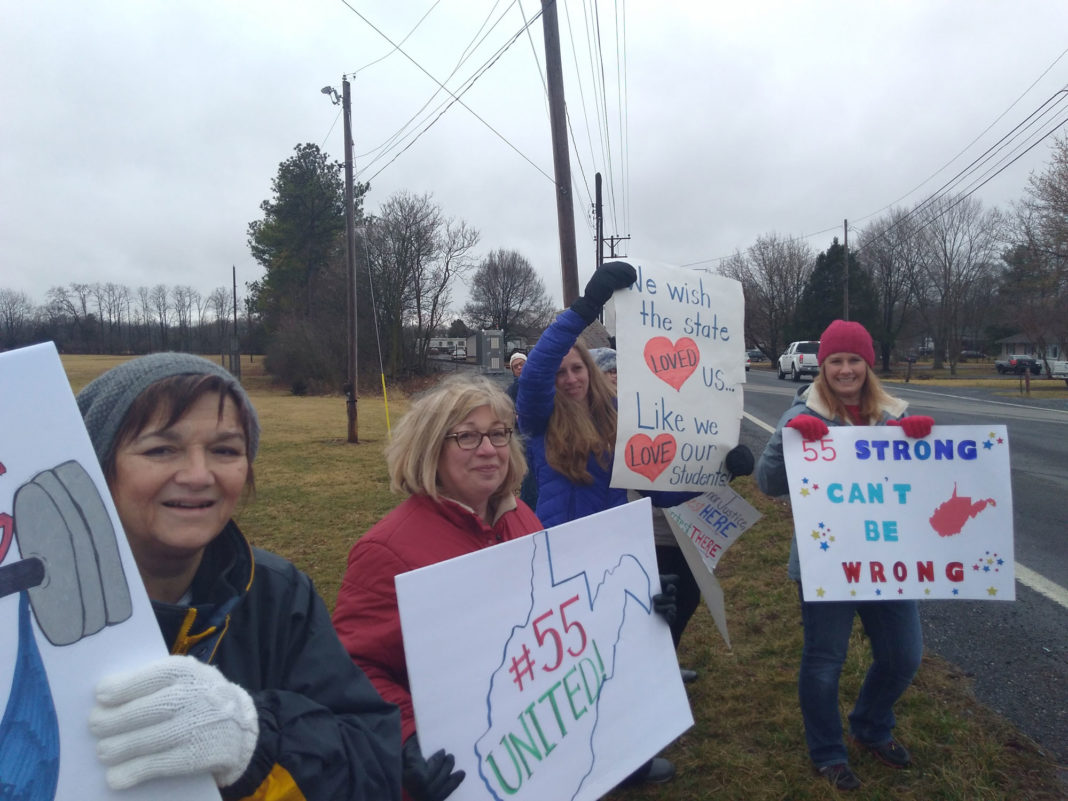ZACKERY GOSTISHA; Guest Writer; gostiszk@plu.edu
On February 22, 19,488 teachers in West Virginia’s public schools stayed home from work. 277,000 students stayed home. One of the largest strikes in years started, and thousands of public dollars lay idle as the state government refused to support its students. They stayed away until March 7, when the state finally raised wages and pledged to do what they should have been doing all along: work with schools, not against them.
The legislature already paid teachers less than any nearby state, with the 48th lowest salaries in the nation, according to the National Education Association. Class sizes are larger than the already-large national average, and resources become smaller each year as cuts deepen and inflation rises. Perhaps worst for teachers themselves, health care and other benefits are a stagnant, complex system riddled with loopholes and frustrations.
More shocking than the state’s already shocking betrayal of promises is the hidden tumult brought to light by the strikers. Textbooks were rotted, both physically and morally. They were decades-expired and left to disintegrate in dilapidated closets, all the while openly promoting racist anti-histories that tear out any accuracy in Civil War or Colonial education. Those books lie to their readers and steal the truth from under them.
Miseducation is the rule of the day. Falsified histories, given by underpaid and undervalued teachers, in barely habitable structures: West Virginia notoriously underfunds its building maintenance and upkeep, leaving struggling students to work in the cold winter without heat, the hot summer without air conditioning and the rainy season with leaky roofs. Teachers can’t keep up with massive class sizes and little support, leaving them incapable of doing their jobs. Students in other states have access to counseling, translation and more services, but West Virginia has very little. The system is failing everyone.
Years have passed as promises stack. Once the economy improves, teachers will be paid. Once leaders are reelected, teachers will receive benefits. Once these bigger priorities pass, teachers will be cared for. Maybe even students too. Once the world stops and hell freezes over, the right thing might happen.
Dreary attrition can often cause hope to wither away, yet here it only gathered in the minds of West Virginia’s people, looming greater with each denial. This strike was not a spasm; rather, it is an embodiment of the empathic response to years of carelessness. When leadership neglected its people, it stirred its own embarrassing critiques. The power of mass movement can never be denied by anyone who watches the world, because of the simple fact that whenever the people are pushed enough, they are bound to push back. And they did.
West Virginia’s government failed in its most basic duties. If a state cannot give a foundational level of support to its residents, the state is violating its duty, turning on its members and burning its future to meaningless ashes. It loses its legitimacy. The state must fix itself to have any hope of lasting. Maybe its agreement to raise wages, as it had a responsibility to do years ago, is the start of a path towards redemption, or maybe it is a blip in the radar tracing its decline. Either way, something has been done.
More than anything, West Virginia’s teachers have done what teachers as a whole always do: display remarkable care for their community. The striving depth of their empathy surrounds us and forms the bricks of our future’s foundation. If children are the future—and they are—education is our prophet; it forecasts what human beings are taught and what they will use to inform every decision of their lives, the minutia to the vital. Education is the way to a better career, life and accessibility to anything else a human could want. But more than that, education allows people to be people.
A person cannot truly make a decision if they are uninformed about the consequences of that decision, or if they are never provided with any alternatives. Education, by its own definition, creates an ability to think about things, understand their contexts and realize how the world works. Without it, people cannot progress at all. Without educators to commit themselves to giving others education, progress does not happen. And when our kind, empathetic teachers are shutting down their schools, you know there’s a problem.
Our entire school system needs to change. Class sizes should be in the teens, even single digits. Textbooks must be honest and true. Testing must no longer be the ultimate benchmark. Teachers ought to be paid and helped in whatever way they need it. Students deserve the best.
On Thursday, March 19, Arizona teachers voted to walk off the job, in a protest over their own state’s refusal to better the world. Perhaps it is not West Virginia’s storm, but instead a tempest stirring just beneath the surface, millions of people knowing that something must change, and it is finally breaking out. Regardless, we’re seeing real action. America’s teaching needs change, and it just might be happening. West Virginia is doing something right.


















